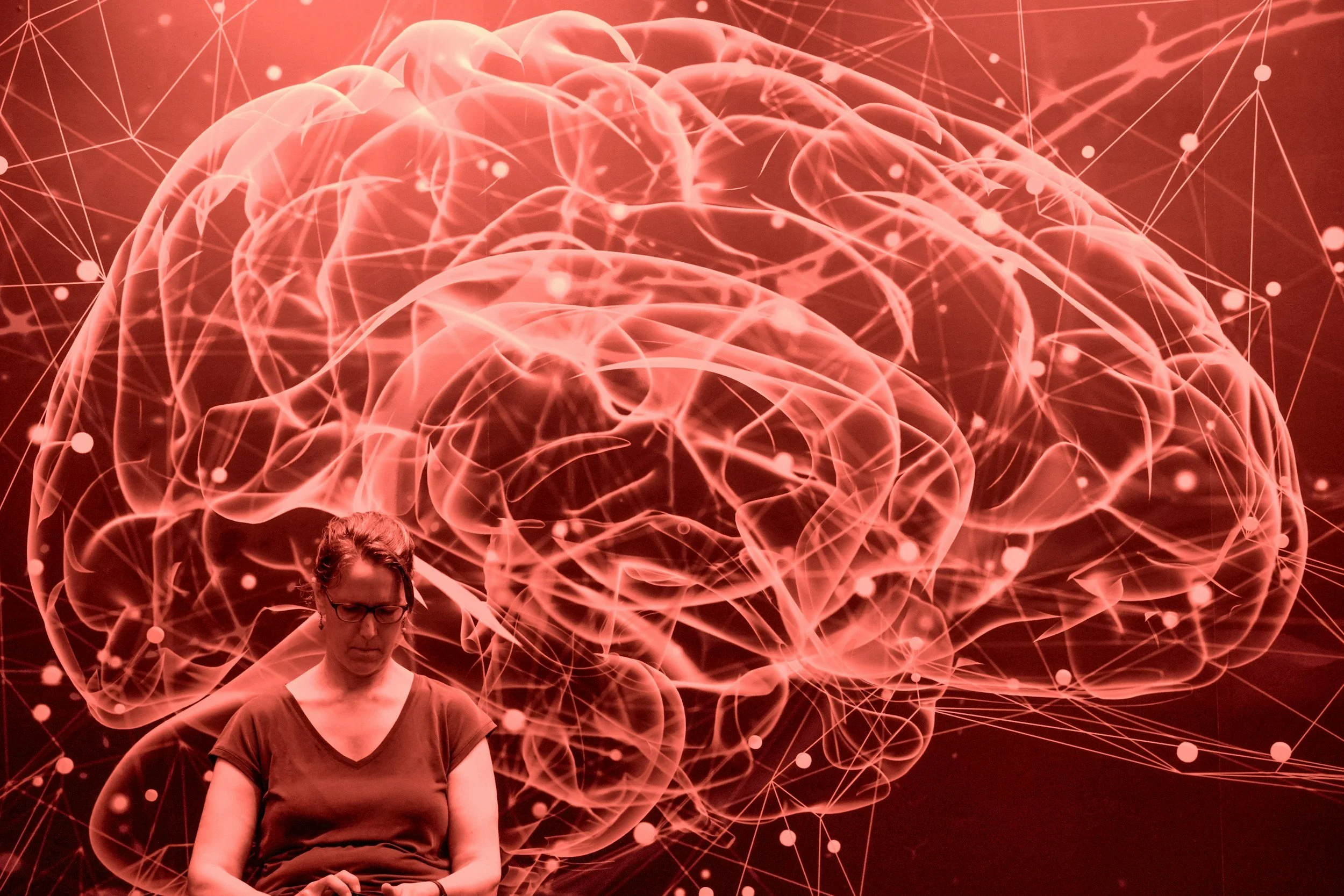ADHD and Eating Disorders
11/19/2025 | By: Carissa Hannum
What is Neurodivergency?
As a clinician that works in the field of eating disorders, a lot of my clients notice and wonder if they might also experience a neurodevelopmental disorder. In the world of TikTok and social media, many clients have learned about the term neurodivergency. Many clients ask, “Am I neurodivergent”? The term neurodivergency has been used and created in the last several years to decrease the stigma associated with neurodevelopmental disorders such as ADHD and autism. Many clients have grown up hearing that their difficulties associated with their diagnosis are “abnormal” or “undesirable”. The term neurodiversity helps clients learn that their brain is unique and has both strengths and areas of difficulty.
Rather than seeing these disorders as problems, there has been a natural push to see this idea. Now, individual differences related to neurodevelopmental disorders are starting to be understood as unique differences and be addressed on an individual and societal level. I enjoy helping my neurodivergent clients learn the uniqueness of their brain, what they are good at and celebrating these skills, while also discovering skills to help with areas of difficulty. This blog aims to explore how one neurodevelopmental disorder, ADHD and eating disorders can co-occur together.
What is ADHD?
Attention-deficit/hyperactivity disorder or ADHD is a neurodevelopmental disorder that can be diagnosed at any developmental point. ADHD affects children, adolescents and adults. Those with ADHD can notice struggles in several areas including inattention, hyperactivity, or impulsiveness. In addition, clients may experience difficulties in executive functioning, leading to struggles around work, school, basic needs, and social relationships. As a result, ADHD can lead an individual to experience rejection, self-esteem issues, and mood disorders like depression and anxiety.
Due to the struggles with inattention, hyperactivity, and/ or impulsiveness, individuals diagnosed with ADHD can have struggles in several areas of daily life including work, school, basic needs, and social relationships. Due to difficulties in these areas and with executive functioning, individuals diagnosed with ADHD can struggle with rejection, self-esteem issues, depression, and anxiety. There are three types of ADHD based upon the symptoms a client experiences, which include Predominately Inattentive Presentation, Predominately Hyperactive/Impulsive Presentation and Combined Type Presentation.
What are the Types and Symptoms of ADHD?
Predominately Inattentive Presentation
Difficulty with focus
Issues with organization
Trouble with following directions and staying on task
Makes mistakes/does not pay attention to small details which leads to mistakes
May lose concentration during conversations or seem to be elsewhere in their mind
Due to difficulty focusing, individuals may start certain tasks but not follow through or finish tasks.
Difficulty breaking down tasks leads to messy, disorganized work or missing due dates.
Struggles with activities that require consistent attention or mental effort.
Often loses materials or everyday things i.e. keys
Very distractable
Forgetting tasks that they agreed to, such as paying bills or a daily chore.
Predominantly Hyperactive/Impulsive Presentation
Tends to fidget with hands or feet
Tends to interrupt others
Seems to be driven by a motor
Feels as though they are overly talkative
Not able to stay seated in situations where it is required
Difficulty with turn-taking
Seems to have impulsive or excessive energy
Combined Type Presentation
With this type of ADHD, individuals struggle with both inattentive and hyperactive ADHD symptoms throughout their daily life.
ADHD and Eating Disorders
The National Eating Disorder Association reports several significant statistics about the occurrence of ADHD and eating disorders:
“Researchers have found that up to 22% of women diagnosed with ADHD also develop an eating disorder, and children with ADHD are almost 6 times more likely to have an eating disorder by the time they reach late adolescence than those without ADHD”.
“Studies have also found that individuals diagnosed with binge eating/purging subtypes of AN, bulimia nervosa (BN), and binge eating disorder (BED) show higher rates of ADHD than those with a restrictive subtype AN diagnosis”.
“Individuals with BED and ADHD often experience more severe eating disorder symptoms, including more frequent binge episodes compared to those without ADHD”.
“Studies have reported that up to 39% of children and adolescents being treated for ARFID also met the diagnostic criteria for ADHD compared to up to 10% of the general population”.
These studies highlight the importance of understanding how neurodivergent symptoms and diagnoses, such as ADHD, can impact the treatment and recovery process for those experiencing eating disorders. Without special consideration of ADHD symptoms, those diagnosed with both ADHD and an eating disorder may continue to suffer without specialized treatment and specialized providers.
How Can ADHD Affect an Eating Disorder?
Although there are many ways that ADHD can affect one’s eating disorder, here are a few examples, and ultimately the need for a specialized approach to treating the eating disorder:
Emotional Dysregulation
Many with ADHD report struggles with emotional dysregulation and coping with these emotions, such as depression, anxiety, shame, and low self-esteem. Eating disorders can become a coping mechanism to deal with emotions and critical thoughts related to ADHD.
Impulsivity
Researchers believe that one of the reasons for the link between eating disorders and ADHD is impulsiveness. Due to executive functioning issues and difficulty with the prefrontal cortex of those with ADHD’s prefrontal cortex coming online as frequently, and those with ADHD may experience impulsivity. Impulsivity can cause individuals to react with behavioral responses to distress without thinking through the consequences.
Impulsivity can lead those diagnosed with ADHD to more frequent bingeing or purging episodes to deal with emotional distress. These symptoms can lower distress quickly in the short term but cause significant dysregulation in the long term. Clients are also more likely to notice impulsive snacking and emotional eating episodes than those not diagnosed with ADHD.
Hyperfixation
ADHD can cause individuals to become intensely focused on one task at a time, while being able to ignore other stimuli in their environment. This skill can be highly impactful and helpful if one is trying to finish an important task. However, hyperfocus regarding an eating disorder can cause problems. Some individuals may become fixated on other activities outside of meals, leading to completely missing or skipping meals, even if this isn’t intentional. Others report taking too much time around mealtimes and food. At times, hyperfixation can be used as a coping mechanism, leading to too much time being spent in the areas of food to deal with underlying emotions.
Executive Functioning
Those with ADHD experience difficulties with executive functioning skills. Executive functioning skills manifest in the brain in the prefrontal cortex. Executive functioning skills are a set of cognitive abilities that help with goals, decision-making, planning, as well as emotional regulation. Those with ADHD and eating disorders can notice many ways that executive functioning affects their eating disorder recovery. However, a few examples can be:
overestimation and underestimation of time to prepare and eat meals
Difficulty planning meals, leading to skipping meals
Eating more than intended due to watching TV or being engrossed in another task
Difficulty breaking down tasks like cooking, which can lead to anxiety around completing these tasks
Difficulty with tasks like cleaning, which can lead to messy kitchens and avoidance of these areas
Difficulty with Transitions
Due to hyperfixation and executive functioning issues, many clients with ADHD report discomfort and anxiety with transitions. With ADHD, it can be difficult enough to get enough motivation to get into one task, so that it can feel almost impossible to transition from one task to another, which includes food. This can lead to unintentional restriction and later bingeing due to missing meals. Transitioning from one task to another can cause emotional exhaustion and emotional dysregulation, such as anxiety, depression, and shame.
Hyperactivity
Another hallmark of symptoms for some with ADHD is hyperactivity. Around food, although hyperactivity can impact any eating disorder, those with ARFID are especially impacted. “ARFID and co-occurring ADHD could be related to certain shared characteristics between the two. These characteristics typically include being easily distracted, problems with impulsivity, increased activity levels, and having a hard time staying seated to finish a meal, which could explain why people with ADHD often present with the limited food intake characteristics of ARFID”.
Strategies to Deal with ADHD Symptoms and Eating Disorders
Meal Planning
Clients experiencing ADHD and an eating disorder can benefit from working with a dietitian to help create a specialized meal plan. Dietitians can help clients find specific food items that can be easier to prepare, as well as a structure around meals that leads to meal completion and emotional regulation.
Creating a Daily Structure
Similar to meal planning, setting aside time to plan one's day can help with impulsiveness and both an over-/under estimation of time. Take 10 minutes either in the morning or in the evening to plan out your day in a detailed format. Following a plan that is already timed out can help with practicing transitions and building emotional tolerance.
Practicing Mindfulness
Practicing mindfulness skills and being in the present moment without judging one's experience can help with both impulsivity, taking pauses to help with decision making, and emotional regulation skills. Mindfulness can also be incorporated around food and hunger/fullness scales, such as intuitive eating.
Emotional Regulation Skills
Those with ADHD should practice emotional regulation skills, such as cognitive behavioral therapy or dialectical behavioral therapy to help develop healthy coping mechanisms outside of their eating disorder.
A Specialized Eating Disorder Treatment Team
Because of the nuances related to ADHD and eating disorders, a highly specialized team that understands the complexities around these two co-occurring disorders is necessary. A team that doesn’t specialize in both of these areas can lead to a worse prognosis for the client. Many individuals work with the following individuals in treatment: a therapist, a dietitian, a psychiatrist, a medical doctor, and an executive functioning coach. Occupational therapists and speech therapists may be helpful for some individuals.
Medication Management
Working with a psychiatrist can be extremely helpful to manage the symptoms related to both ADHD and eating disorders. Clients may need their own special medication “cocktail”. For instance, some individuals take both medications for their mood as well as a stimulant medication to help with executive functioning issues. However, stimulant medications should be used with caution as they can decrease appetite. Those on stimulant medications may not be able to practice intuitive eating.
Executive Function Coaching
Executive Function Coaching can be done both in therapy or with a specified individual coach that can help develop skills to help attention, impulse control, and, of course, executive functioning skills, like organizing, planning, time management skills, etc. Working with an executive function coach can help each individual identify their unique strengths and areas of improvement related to their ADHD and come up with a plan of action for utilizing these strengths as well as creating a plan of action around their struggles.
Reach Out
If you’re considering professional support, we’re here to help. Please reach out to schedule a free, no-commitment consultation. There’s no fee and no obligation—just click the button below to get started.
You can also call or text us at 202-656-3681, or email us directly. Give yourself the opportunity for the support you deserve.








